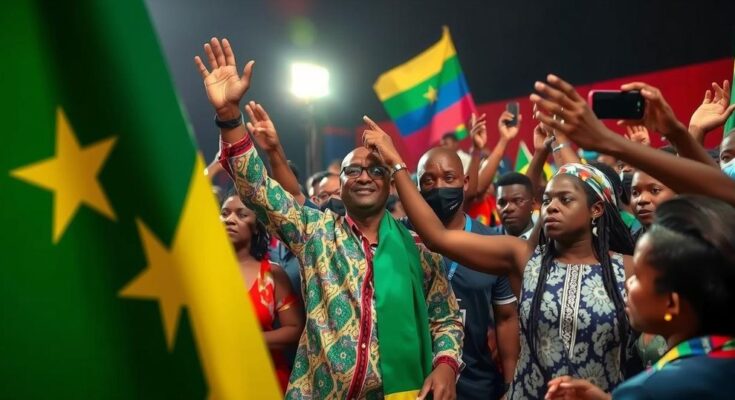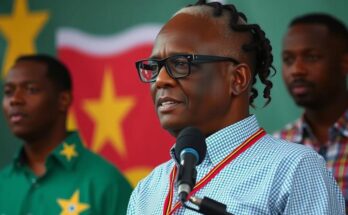The Pastef party has claimed a large victory in Senegal’s legislative polls, giving President Faye a mandate for reforms. Former opposition leaders have conceded, although official results are still forthcoming. The government aims to pursue a radical reform agenda amid challenges such as unemployment and claims of electoral fraud. Former President Sall alleges irregularities without specifics. The elections signify a crucial moment in Senegal’s political trajectory.
In the wake of Senegal’s parliamentary elections, the Pastef party has proclaimed a significant victory, asserting a dominant position as most ballots have already been counted. The ruling party’s success is expected to empower President Bassirou Diomaye Faye, allowing him to pursue an ambitious agenda focused on economic and social reforms, which had been the cornerstone of his campaign since his election in March. As the vote was largely peaceful, oppositional figures such as former Prime Minister Amadou Ba conceded while official election results remain pending.
The elections unfolded without major incidents, although minor clashes did occur among party supporters in the days leading up to the polls. Government spokesperson Amadou Moustapha Ndieck Sarre expressed gratitude to the Senegalese electorate for their support, noting the vital importance of this electoral outcome for the Pastef party. Despite not disclosing the specific number of seats secured, Pastef seeks to attain 83 of the 165 seats in the National Assembly to achieve an outright majority.
The ongoing challenges faced by President Faye and Prime Minister Ousmane Sonko in passing reforms in the previous opposition-controlled parliament have highlighted the political hurdles confronting the administration. The administration’s commitment to reforms focuses on a nationalist agenda that seeks to redefine Senegal’s ties with France, a former colonial power. As Africa’s youngest leader at age 44, President Faye has promised to address economic justice and anti-corruption, resonating strongly with the country’s youth. Nevertheless, the administration will likely encounter formidable obstacles related to high unemployment and unstable public finances.
Former President Macky Sall, now leading an opposition faction from abroad, alleged that massive electoral fraud had been perpetrated by the Pastef party, although specific details supporting these accusations were not provided. The official election results are anticipated to be published shortly.
The recent legislative elections in Senegal are pivotal for determining the political landscape of the nation. President Bassirou Diomaye Faye, who campaigned on a platform of radical economic and social reform, has emphasized the need for a parliamentary majority to move forward with his agenda. The electoral process has witnessed claims of victories and reports of alleged irregularities, reflecting the tensions between the ruling and opposition parties. Senegal’s history of political dynamics, particularly the student demographics and the legacy of colonial ties to France, informs the current political climate, positioning these elections as crucial for future governance. The stakes are heightened by the young leader’s ambitious plans and ongoing societal challenges.
In conclusion, Senegal’s parliamentary elections have resulted in a declared victory for the Pastef party, promising a strong mandate for President Faye’s reform agenda. While this outcome appears favorable for the ruling party, significant challenges, including high unemployment and opposition claims of electoral fraud, remain critical factors for the administration’s ability to deliver on its promises. The evolution of Senegal’s political landscape now hinges on the final official results and how effectively the new government can navigate internal and external pressures. As the nation looks towards a transformative future, the implications of this electoral outcome will undoubtedly resonate across its socio-political fabric.
Original Source: www.bbc.co.uk



